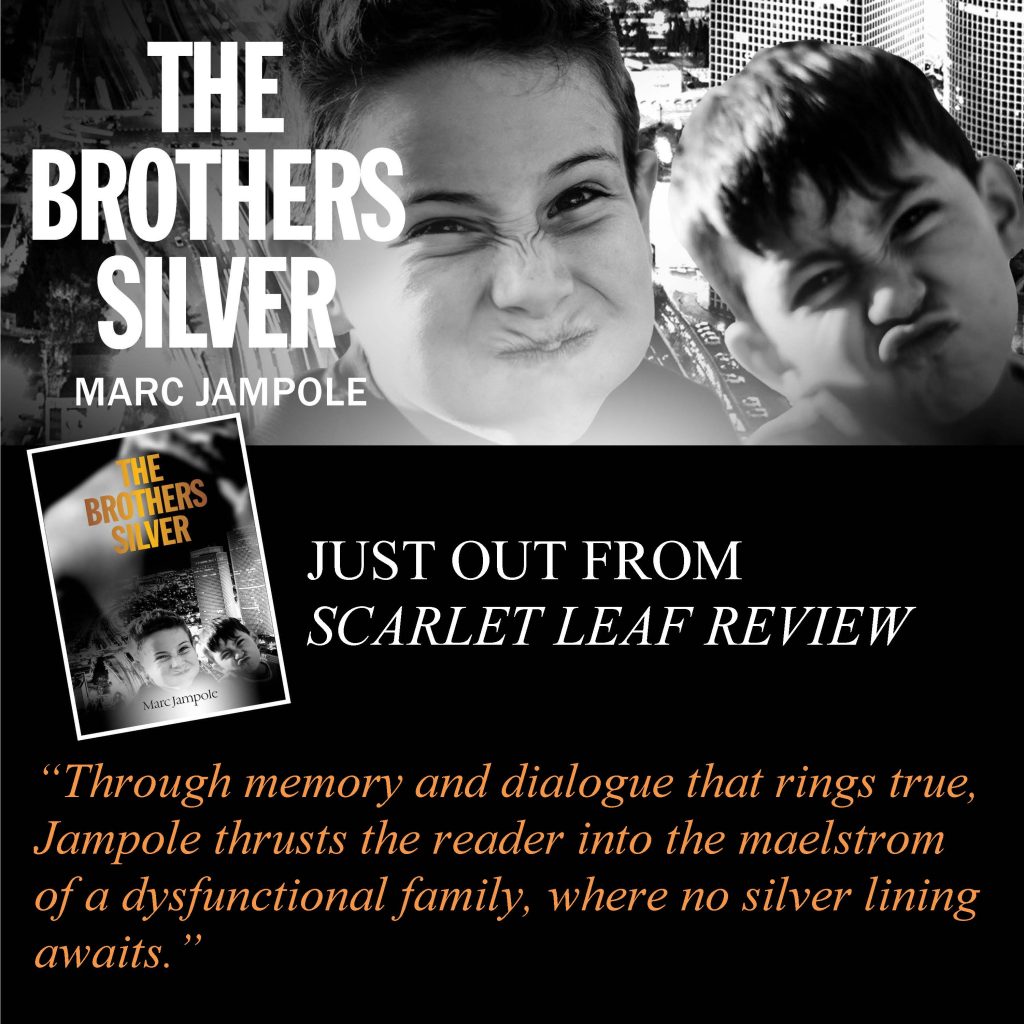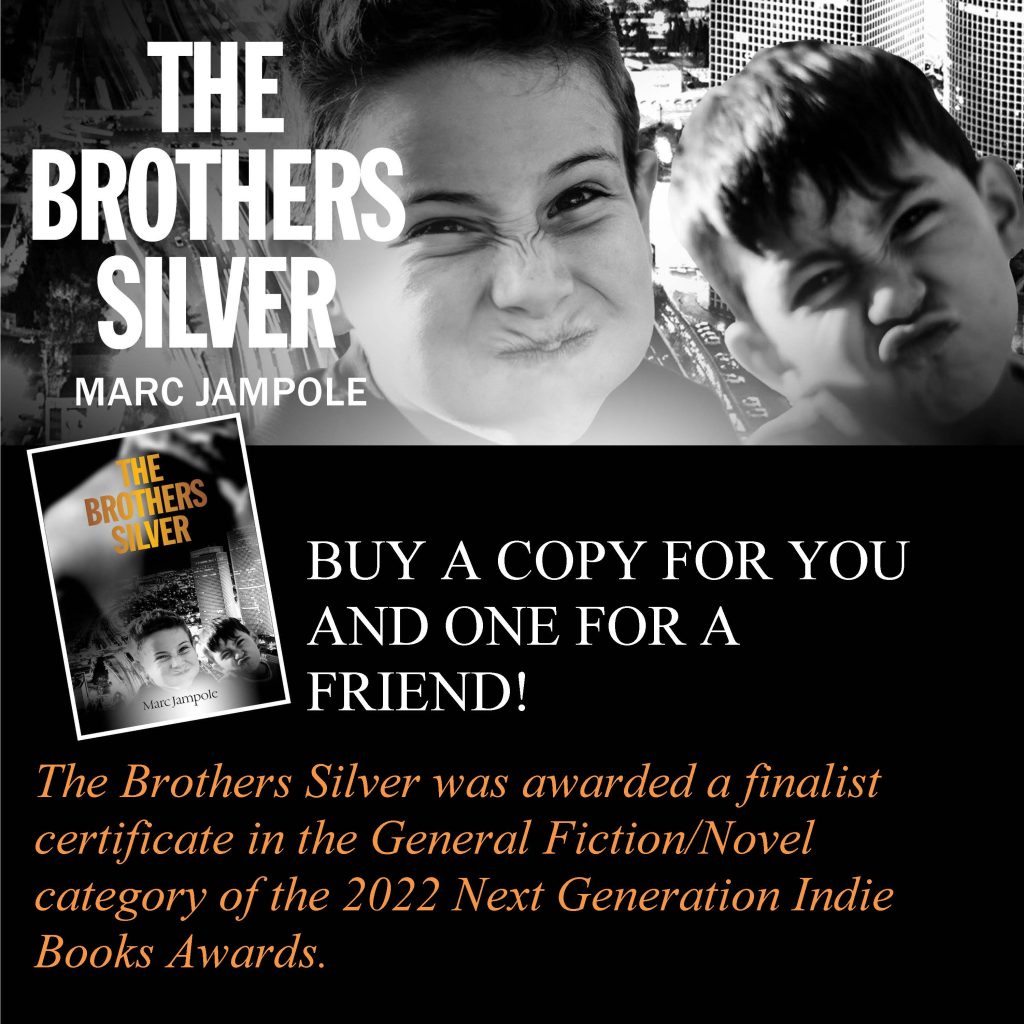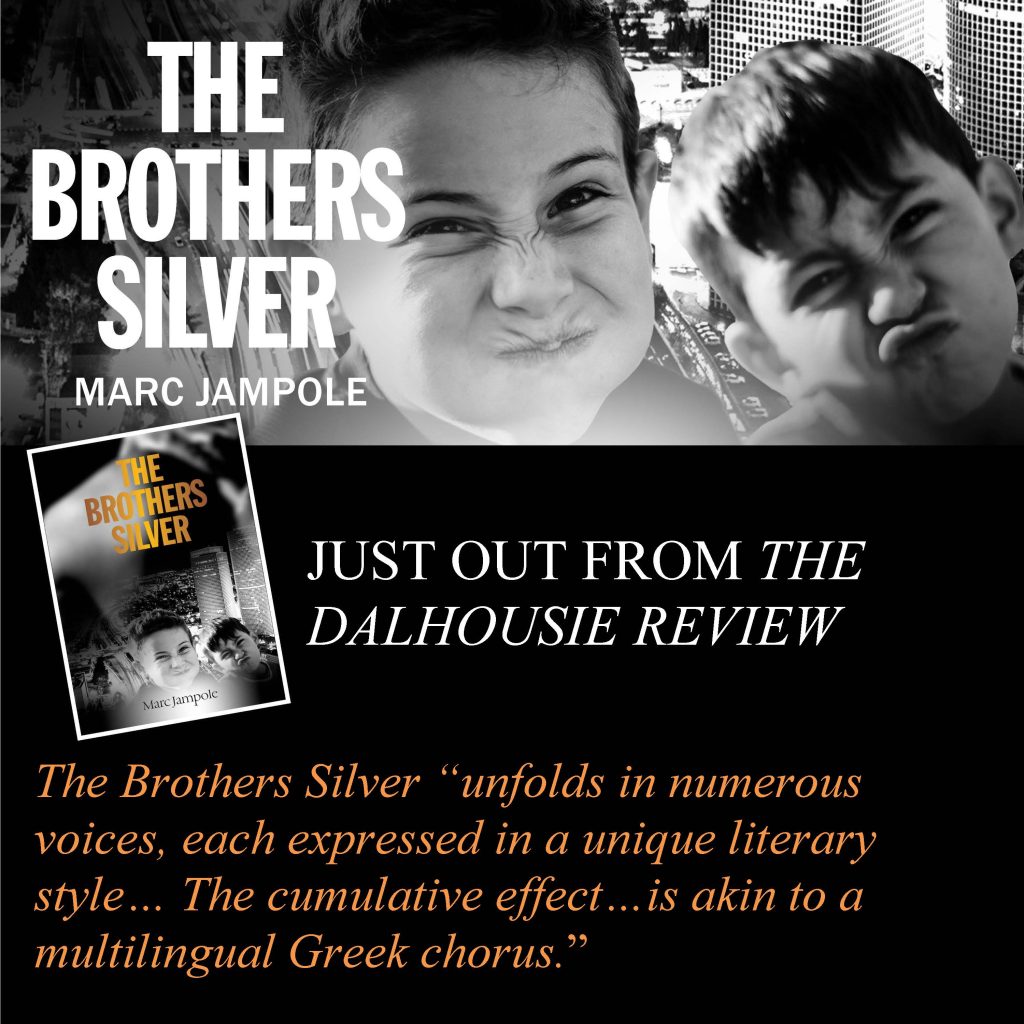
Year: 2022
Indie Book Award
TWO NEW POEMS IN SIN FRONTERAS
I have two poems in the latest issue of Sin Fronteras. Here is one of them:
WHY EVERYONE’S FAVORITE UNCLE MISSED THE WEDDING
From table to table he goes like stations of the cross,
from meeting to weeping to nailing.
They eat each other’s salt and it tastes like flesh,
they touch each other’s flesh and it feels like salt.
Someone at the table will soon get ill,
someone at the table will die.
He grows tired of playing Prospero
or the Bodhisattva of Perpetual Learning,
but he can’t help himself around family.
He grows tired of playing himself
and the only way to stop is solitude,
but alone he can hear his heart,
and every beat proposes a question
to which he has no answer:
Why one man falls at forty-seven,
while another man persists to ninety
despite his pains and disappointments,
why one man sees the dark in every light,
and another finds the light in darkness.
2
To see both poems: buy the latest issue and go to page 29:
https://sinfronterasjournal.com/
Just Out From The Dalhousie Review
GREAT REVIEW OF THE BROTHERS SILVER IN THE LATEST VASSAR REVIEW:
Countering Culture by Jessica de Koninck
The Brothers Silver by Marc Jampole (Owl Canyon Press, 2021)
Stories of family trauma, parent-child relationships, and sibling rivalry are part of the human psyche. They are central to the opening stories of the Bible as well as to those of earlier traditions. In the original trauma, God expels Adam and Eve from the garden. Eve gives birth to two sons. Sibling rivalry begins, culminating in Cain murdering Abel. Am I my brother’s keeper? (Genesis 4:9) is a question that continues to repeat. The Book of Genesis is filled with dysfunctional families and siblings with difficult relationships – Isaac and Ishmael, Jacob and Esau, Joseph and his twelve brothers. The patriarch, Abraham, sets out to kill his son, Isaac. Death, deception, and betrayal characterize our earliest tropes.
Into this tradition enters The Brothers Silver, the first novel by poet and non-fiction writer Marc Jampole. The book represents a highwater mark in the history of stories of family trauma and sibling rivalry and the kind of book you want to talk with someone about after reading. It is also a story of the Baby Boom generation, and the time period from the late 1940s to the turn of the 21st century. The story crosses the continent from East to West and North to South, starting in Queens, NY, and moving on to Florida, Illinois, California, parts of the West, and back to the East Coast. Novels by men about sibling rivalry are not new. Consider the various intrigues in the similarly titled The Brothers Karamazov. Parenthetically, one of the pleasures of reading The Brothers Silver is the many literary and other references and allusions scattered throughout. There is no detriment to not recognizing them, but recognition adds its own thrill. Again, like Jacob and Esau, The Brothers Silver concerns two brothers, Jules – the older, and Leon – the younger. Typical of many families, particularly those with absent parents, the older son is the caregiver, but also deeply competitive, fearful of losing his birthright. Meanwhile, the younger is detached and depressed, but strong, smart, and handsome.
Less typical of novels written by men, The Brothers Silver is an in-depth exploration of the impact of childhood family trauma on the lives of two boys whose parents are abusive and neglectful. Their father, Ed Silver, who asserts that “all women are whores,” is a largely absent narcissist, unwilling or unable to provide financial or emotional support. Their mother, Ethel Silver, experiences severe mood swings and errant behavior, leaving her unable to hold a job, care for her children, or manage anything about her life.
Writing about family trauma is also not new to literature, though it has unfortunately and often disdainfully been negatively characterized as confessional writing in both memoir and poetry, as if certain life experiences were either too embarrassing or too unworthy for literary exploration. In conversation, Jampole noted: Being a victim myself of childhood abuse and neglect, and someone who struggled it an adult – the largest part of the struggle being admitting it, because I am, of course, male – I basically wanted to write about this subject.
Jampole writes from the poetic tradition. Despite the brilliance of the poet Robert Lowell, who may reasonably be called the progenitor of confessional writing, there appears to remain a sense that the exploration of feelings belongs to the realm of women writers and is less serious or worthy as subject matter. The Brothers Silver rejects that negative assessment and unflinchingly explores the origin and impact of childhood trauma. The novel explores its lifelong impact and the difficult and long-term work necessary each day in order to survive. Childhood trauma, Jampole noted in conversation, is not like a disease that you cure; it’s a disability that you learn to live with.
The book opens with the two young boys, Jules and Leon, wrestling, on the dusty floor of what turns out to be the courtroom chambers of the judge in their parents’ divorce hearing. The scene is heartbreaking. The nightmarishness worsens as their mother, popping pills, drives the boys home and, in a stupor, must be persuaded out of the car. There is an argument in the kitchen with their father about signing the divorce papers. Sometimes the house is clean, and meals are available. Often the boys are left to fend for themselves. Their situation, contrasted with Jules’s happier recollections and hopes that things may change for the better, only gets worse. The brothers remain helpless in the face of their mother’s repeated suicide attempts and inability to hold a job and their father’s physical absence and emotional unavailability.
The Brothers Silver is also a literary novel. As a result of both the authenticity of the child’s voice and Jampole’s use of language, the opening chapter is extremely powerful in establishing the source of trauma. For those who read for writing, the Brothers Silver is a glorious adventure. While the remaining chapters are not as fluid or compelling as the opening one, each drives the narrative, explores the possibilities of language and form, and mixes genres with fluidity. The text is keenly attuned to music, from the rhythms that permeate the chapters to the songs playing in the background or on the radio. Indeed, music, chess, politics, and philosophy are just a few of Jampole’s interests that The Brothers Silver has sufficient gravitas to explore.
The Brothers Silver contains twelve chapters, each of which can be read as an individual work, But the whole is larger than the sum of its parts. The opening chapter, “On the Cold Hill’s Side,” is particularly effective as a stand-alone piece. “Hashmal,” a hilarious drug-crazed romp through a soon-to-be-closed Mikvah (Jewish ritual bath) appeared in publication previously. Each chapter is written in a distinct voice and style. It is a work of literary fiction in the best tradition thereof. It harkens back to the mixed genre explorations of John Dos Passos, one of Jampole’s early influences. As noted, “On the Cold Hill’s Side” is recounted in the voice of a pre-adolescent child. Jampole carefully employs the language and diction of childhood. At the same time, the adult reader’s understanding of the consequences of Ethel and Ed Silver’s behavior makes the experience for the reader and the reader’s compassion for the children that much more intense. While set forth on the page in prose format, the opening chapter is largely written in rhyme and meter. The attention to sound has a trance-like effect, pulling the reader along into the childhood world of Jules and Leon. Jampole, in conversation, emphasized his interest in writing novels using rhyme and the relationship between rhyme and meter to create emphasis. His use of poetic strategies to drive the narrative voice, with each phrase amplifying the next, contributes significantly to the effect of the opening chapter as a whole.
For example, this excerpt finds the Silver boys in the kitchen: Inside, sleeves above my elbows, tie unclipped, I search the fridge and cabinets for something we can eat. Eggs to scramble, grated cheese, some onion dip, a box of Cream of Wheat. I talk of Mantle’s injuries to Lee, Howard at the plate replacing Yogi, how Whitey with a mighty curveball put a collar on Sherm Lollar, why I think the Reds will tank, why Matthews is as good as Ernie Banks, Cepeda, McCovey, other Giants. I speak to fill my brother’s silence. Not only has Jampole established the setting of a boy working to feed himself and his brother and provided a time frame with the use of baseball examples, but, significantly, the hypnotic iambicpace filled with rhyme – “Lee” and “Yogi,” “collar” and “Lollar,” “tank” and “Banks” – creates an immersive experience for the reader. Immediately before recounting the trauma that closes “On the Cold Hill’s Side,” Jules recites a lengthy lyric daydream in an attempt to fit together the broken pieces of his life. The reader understands that nothing makes sense to Jules and that, though he has been warned not to, he will blame himself for whatever has happened or will happen.
As with each succeeding chapter, the second chapter shifts tone, voice, and writing style. Jampole believes it essential to tell the story in different voices in order to gain a more complete perspective on the characters and their situation. Chapter Two is a soliloquy in the voice of Ed Silver, father of Jules and Leon. The boys are now on the verge of adulthood, Jules is in college, and Leon has taken off for San Francisco. This claustrophobic use of monologue is a particularly apt vehicle for a character with a limited world view who is deeply narcissistic. He understands neither his older son’s idealism nor the younger’s distance.
The third chapter moves to dialogue in the voice of secondary characters, an aunt and uncle. This may be the least successful of the chapters as an experiment in the use of language. Its emphasis on Southern dialect often feels forced and the characters one-dimensional. Yet the next chapter, a third-person dramatic dialogue, skillfully personifies Jules’s feelings by affording each one of the characters a literal voice. Here’s a brief sample in which the language feels fresh and satisfying. Guilt: Unconscious mother, barking television, plastic vials, glass half filled with water, knew it was all my fault. Shame: Stupid, stupid, stupid, not to see her breathing. Not to see she was still alive. Anger: I knew she was alive. I wanted her to die.
Another chapter is in the form of a letter. Like the first chapter, the final chapter is lengthy, approximately one-third of the entire book. It, too, is in the voice of Jules, now an adult, forty or so years after the first chapter. Like the opening chapter, the final one, titled “Along an Unknown Highway,” employs poetic strategies, but here the vocabulary, syntax, and diction are those of an adult in which Jules takes a lengthy road trip.
Jampole pays homage to the long tradition of road trip stories with a quote from among the earliest, and certainly the best-known, opening with a quote from the beginning of Dante’s Inferno. The epigraph reminds the reader that it may be necessary to go through Hell to have any hope of getting even as far as Purgatory, let alone Heaven.
The extended road trip affords the opportunity to explore the turn of 21st-century American Zeitgeist. It’s a lamentation for the promise of the 1960s and the disappointing realities of the 2000s. Jules, driving alone, traverses the country to visit with an assortment of characters from his past, including people met while hitchhiking. Indeed, hitchhiking, a largely lost 20th-century phenomenon, is a central metaphor of The Brothers Silver. What would Jack Kerouac have had to say had he repeated his own road trip?
The opening paragraphs of the chapter, through their use of poetic tropes as well as literal language, make Jules’s road trip one that occurs both within and transcending space and time: The tumbling sky shivers like my bleary body from the wind of speeding cars and trucks. Squinting drivers steer into a quivering solar ball that singes roads and signs, sears the fences, flames the crows and ducks. In my sight, glowing malls cross horizon’s edge and welkin squid-ink stains the spurge and sedge, leaches roofs and building cranes, dims the city structures into specks of light.
The birth of night releases cicada humming, beetle scuffles, wind and spider throws. Moisture stumbles over dell. Wind song and cricket clatter swell and grow to ostentatious silence. A white noise knells. Time ceases giving hints of its existence. Jules’s journey is most compelling when it affords him the opportunity to meditate or advances the narrative. His trip is less interesting when the characters begin to feel more like stereotypes than archetypes, and the narration becomes didactic rather than revealing.
There’s one of almost everyone – the drug dealer turned physician or politician, a lawyer who represented draft evaders now a management labor lawyer, a born-again Christian, black, white, gay, straight, inhibited, uptight. More men than women. With the exception of Ethel Silver, the female characters, including Jules’s former girlfriend Elaine, whom he calls El, are, for the most part, less fully realized than the male. There’s nothing particularly fresh about a drug dealer who grows up to be a psychiatrist. In light of the serious psychiatric problems among his family, more interesting is Jules’s aversion to medication for ADHD, and, by implication, other medications for psychiatric disorders.
The adult Jules, like most of the characters he encounters, has given up the idealism and hedonism of youth for financial security, routine, and certainty, but he was never an actor who tried to effect change. His principal and most important skill is survival, while his observations about complacency border on the trite: But I was, nevertheless, part of the obscene machine that ground down the dream of a social democracy that we seemed on the path to reaching in the mid-seventies. I once believed fervently in the possibilities of a social democracy overseen by a real meritocracy, where everyone had a chance to thrive, a green land that provided a minimum standard of living, and free healthcare and education to all, financed by taxes on the wealthy, something like France or Scandinavia. That was then. Has my later apathy been any different from Dean’s? Yet his occasional focus on who has gained too much weight is entertaining and creates a sense of reality.
Jules’s reactions to, and coming to terms with, who each of these characters both was and has become ground the story and maintain momentum, even when the people themselves begin to become repetitive. Similarly, Jules maintains his feeling of being an outsider throughout. While the ideological/political thread in the story of Jules’s trip feels somewhat forced and superficial, his continuing meditation about his failed relationship with Elaine provides a deeper understanding of Jules’s character. The reader is left almost as baffled as Jules himself at his subsequent ability to establish and maintain a long-term marriage and a stable relationship with his daughter. He believes it relates to his ability to view himself as the perpetual outsider.
His outsider status is the wall Jules has created to distance himself from his emotions. Yet his ability to connect with people he has not seen for years, his successful career as well as the family relationships of his adulthood, feel grounded and real and speak of a level of hard work and commitment for which Jules never gives himself credit. That lack of acknowledgment of self-worth resonates as the residue of a traumatic childhood. It is a corollary to taking on the perpetual role of outsider.
None of us is truly our brother’s keeper. We can offer help or guidance, but, in the end, we can only live our own lives. And none of us can escape whatever trauma life has brought us. The challenge is how to live with trauma. Do we live in denial, build walls to shut out feelings? Do we live in perpetual adolescence without daring to explore the possibilities of adulthood? The damage of childhood trauma, will, to a greater or lesser extent, always be permanent. The challenge presented by The Brothers Silver is the challenge to survive.

